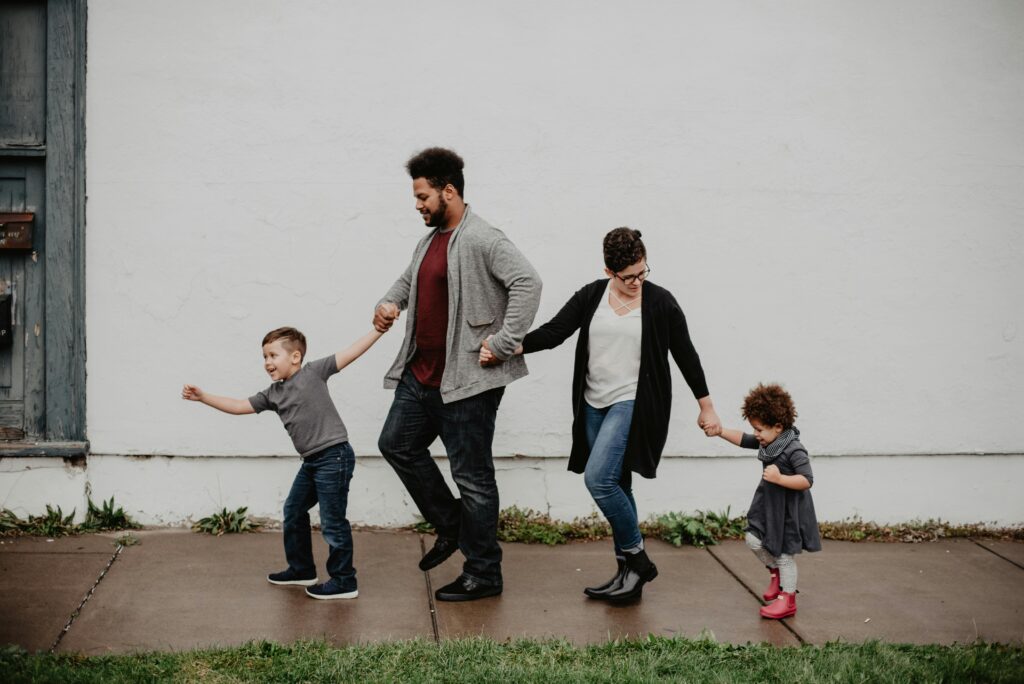It starts Innocent Enough
“I can’t wait to homeschool our kids! It’s been our plan from the start…” “We’re homeschooling our 22 month old this year, what’s the best curriculum?” It seems that the excitement to homeschool takes over and mamas so easily start getting the itch to start “school” earlier and earlier. We used to send kids off to school at 6 years old, knowing their basic colors and counting to 10. Boy have things changed! When my daughter was in Headstart in 2016, they told me she needed to know all her letters, how to spell and write her name, and how to count to 100 forward and backward before entering kindergarten in the public schools. I thought, “ what do they learn in kindergarten, then… Calculus?!”

The pressure to cultivate child prodigies seems to be trending in the last decade or so. People are starting their 3 and 4 year olds in Montessori schools and trying to compete with the Japanese for developing super smart kids. Kids are starting formal education earlier than ever to keep up with the Jones’ (or Suzukis as it were). Homeschoolers have started to fall into this trap as well. I’ve seen it mostly in those who are new to homeschooling and honestly just excited to get started. And while that’s commendable, there are lots of reasons to hold off.
The most important reason, in my opinion, is to avoid burnout for the children and you! Starting formal education at 3-4 years old means they could face burnout and hate school at a younger age, too. Children need to enjoy their childhood and natural learning environment. They need free play. They need to get bored so they can find creative solutions to their own entertainment, interests and exploration. So much can be said on this topic. My favorite book currently is The Call of the Wild + Free. I cannot recommend it enough! I think it should be required reading for every homeschool parent.
How Soon is Just Right?
So if 3, 4 or 5 is too young for starting school, when should formal education begin? Great question! I’m glad you asked. The answer is not so cut and dry. I’ve heard plenty of veteran homeschool moms agree that boys especially should not be pressured to do any formal education until about 8 years old. That might sound crazy compared to the public school system which is pushing kids into classrooms younger and younger. But let’s not forget the classroom was not designed for boys to win! Any mom of boys can relate to me on this one.
But what about girls?! If they do well in the classroom, shouldn’t we start them sooner? Surely at 5 or 6, right? Well, I think it depends on a few things. So I’ll give you a range and let you decide where your family and children fit on the spectrum.

Interest
Sometime between the ages of 6-8 (give or take a year on either end), children will start showing an interest in learning to read for themselves. They’ll start curiously asking what different words say and which letters make certain sounds. The concept of the left to right movement starts to kick in. You might even catch your child “reading” their favorite books by reciting from memory as they flip the pages and use the pictures to tell the story. When this interest shows up (without outside pressure), it’s a dead giveaway that they’re interested and ready to start learning how to read. In the meantime, read aloud to them daily. Make it part of your bedtime or breakfast routine.
By this time, most kids will already have learned the basic colors and numbers. When they show a similar interest in counting things, it’s natural to use beans, dominoes, dice or other manipulatives to teach simple counting and addition. IE, “If I have 3 beans and you give me 4 more, how many do I have?”

Homeschool Storytime
Every kid is different. My brother loved all things numbers and would play these sorts of games, but absolutely refused to read. It drove my mother to tears! I remember her lamenting and beating herself up, trying to “force” him to try reading, enticing, bribing, etc. But he wasn’t having it! Finally, she decided to let it go and lean into his interest. She focused on numbers with him and he finally took an interest in reading when he was about 8. I’m sure she went through all the comparison stuff, wondering if she was failing him or if others were judging her because her 8 year old was just learning his sounds. But he picked it up quickly and later went to one of the most prestigious engineering universities in the country and graduated with a 4.0 GPA. He now owns an engineering firm he started and reads just fine.
Your kid will be fine, too. They will {hopefully} pursue what they’re passionate about and reading will come when they’re ready. Just like mastering the spoken language. Your job is to notice when they are interested and feed that interest.

Attention
I used to teach private piano lessons and there is no 30 minutes longer than when trying to help a wiggly 4 year old boy focus on sitting still! It’s frustrating for all parties involved!! For the love of Pete, do not try to make your child sit still for long stretches of time if they’re not ready! That’s exactly what most of us recognize is wrong with the institutional schools. Be willing to adapt and pivot if you have a kid with the wiggles.
Wait to introduce “formal learning time” until the child can sit and focus on a project (like legos, play dough or coloring) for about 20 minute stretches. When you start doing lessons, set a timer for 20 minutes. No matter what you’re doing when the timer goes off, stop. Switch to something physically engaging like an outside break, dance party or go for a walk. Even if your kid could go longer, I highly recommend shifting from mental focus to physical, back to mental to keep things interesting and to hold their attention. Fresh air and movement do wonders for the mind!
As they grow in maturity and practice, you can increase that time to 30 minutes. But even teenagers need to get up and stretch their legs!

Expectation
Nothing kills mom’s enthusiasm like unrealistic expectations! We do it to ourselves! We let others’ expectations or some over the top internal expectation steal our joy. And then the kids get the brunt of our disappointment. I’ve been there. And if we’re honest, it’s not the kids’ fault they’re not meeting our unspoken expectations.
Search your heart. Is there some outside pressure that is bouncing around in your head, wreaking havoc in your mind? Are you hoping to prove your own value through your kids’ academic performance? Do you suffer from perfectionism and comparison? Those ugly buggers are rampant in the homeschool community. Guard yourself against outside pressures by getting super clear on your Homeschooling Why.

Make sure that you have pure intentions. Let your kids be who they’re designed to be and hold realistic expectations of their development and effort. Let them go at their own pace while doing your part to pay attention to their interests and readiness for learning.
It’s kind of like a double dutch jump rope…you gotta pay attention and know just when to jump in. Be patient and realistic about where your kids are. Love them well and feed their interests and gifts/strengths as much as you can!
You can do it!


Leave a Reply